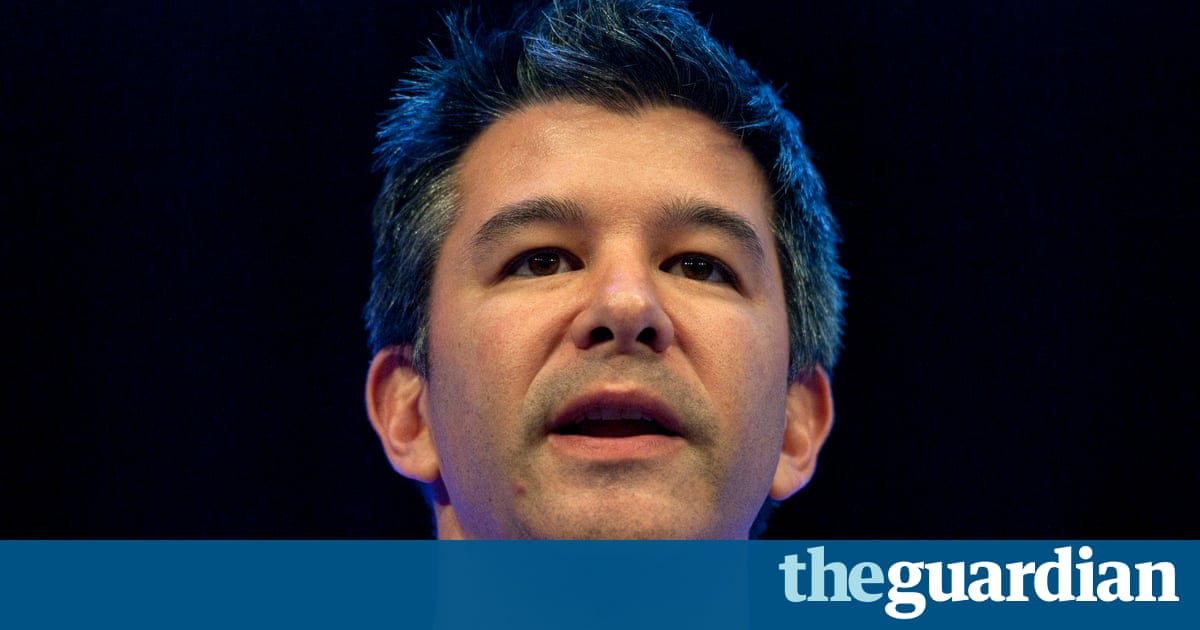His departure may give pause to other tech bro-dominated startups pursuing growth at all costs, but some say Silicon Valleys issues are too deep rooted

The ousting of the Uber chief executive Travis Kalanick is wake-up call for Silicon Valley and a tech industry which has long celebrated founders who break the rules and pursue growth at all costs.
On Tuesday Ubers investors finally pressured the ride-sharing companys leader to resign following an avalanche of allegations of sexual harassment, intellectual property theft and driver manipulation.
Its unlikely that investors, who have largely stood by Kalanick through years of allegations of impropriety, have suddenly developed a conscience. Rather, they have come to realise that the CEO of the $68bn startup which has yet to make a profit has become a liability.
Robert Siegel, a partner at XSeed Capital and lecturer at Stanford Business School, raised the specter of the Enron scandal in discussing Ubers board of directors, saying that they were kept happy by the companys success and increasing valuations.
What you see is a situation where proper oversight was not being provided, Siegel said. The investors had very little power and incentive [to intercede]. Everyone has an incentive to tell this narrative about Uber changing the world. And it has changed the world. Unfortunately, that got in the way of people doing their jobs.
Frida Polli, founder of Pymetrics, a software company that aims to improve diversity in hiring agrees. They are investors. Obviously they are making a business decision. Its foolish to think their eyes have been opened to how terrible the culture is. Theyve known for a long time.
As far back as 2014, reports on the existence of God View and the companys unscrupulous tactics to compete with rival company Lyft were raising serious concerns about the companys ethics. Senior vice president Emil Michaels 2014 suggestion that the company should investigate critical journalists helped cement Ubers reputation for playing dirty.
Ubers investors had little power because of a founder-friendly share structure, which grants extra voting power to entrepreneurs and was popularized by Facebooks Mark Zuckerberg.
For Siegel, this indicates that the pendulum probably swung too far away from responsible management. When it becomes about the notion of power and control and its not about building a business the right way, the risk is that things like this happen and people lose their moral compass.
Kalanicks departure is likely to give pause to other tech bro-dominated startups pursuing growth at all costs.
Its going to prompt some of the Silicon Valley tech bros to think carefully about who they select as their leaders, said business ethics professor Joseph Holt, from University of Notre Dame.
You can have a disruptive technology without having a disruptive, chaotic culture, added Greg Lamboy from Silicon Valley based headhunting firm Hager Executive Search.
Not everyone agrees that this will prompt any broader changes in Silicon Valley. Leslie Miley, a veteran software engineer who previously worked at Slack, said that although Kalanick is out, the investors still have blood on their hands for failing to act sooner.
How can you [investors] act in this manner? People have died. People have been raped, assaulted. People have lost their jobs and their mental health because of a culture you have built, he said. Maybe theres no morality in money.
Even the timing of the forced resignation is troublesome, he said. Not only was it a reactive decision rather than a proactive one, but it also came less than a month after Kalanicks parents were involved in a boating accident in which his mother died.
How do you ask someone to quit while they are mourning the death of a parent? Come on people, you couldnt wait? This is some Game of Thrones Faustian stuff.
Miley would love to see other companies change as a result of Ubers well-publicized problems, but believes that cultural issues in Silicon Valley are too deep rooted.
In order to make a real difference change needs to happen in the investor community, which is, said Miley, still predominantly male, white and privileged.
Until that changes, the people who get money and funding and access arent going to change. There are many Travises in the wings waiting for their chance in the limelight. Silicon Valley is going to be Silicon Valley.
As for the future, Siegel stressed that Uber remains an incredibly popular product.
With Kalanick gone and so many vacancies in senior leadership, Siegel said, theres an opportunity for a new CEO with an impeccable moral reputation to quickly build a new leadership team and reboot the company. Freada Kapor Klein, an angel investor in Uber who declined who spoke to the Guardian last week about Travis leave, said then that the CEOs absence enhanced the companys ability to recruit a strong chief operating officer.
Whether there will be many candidates excited to take on the flaming trash heap is an open question, but Siegel was optimistic.
Its a challenge, he said. Great leaders are drawn to challenges.
Read more: www.theguardian.com




![[Video] How to get rid of bed bugs in Toronto](https://www.thehowtozone.com/wp-content/uploads/2019/10/maxresdefault-2-100x70.jpg)


